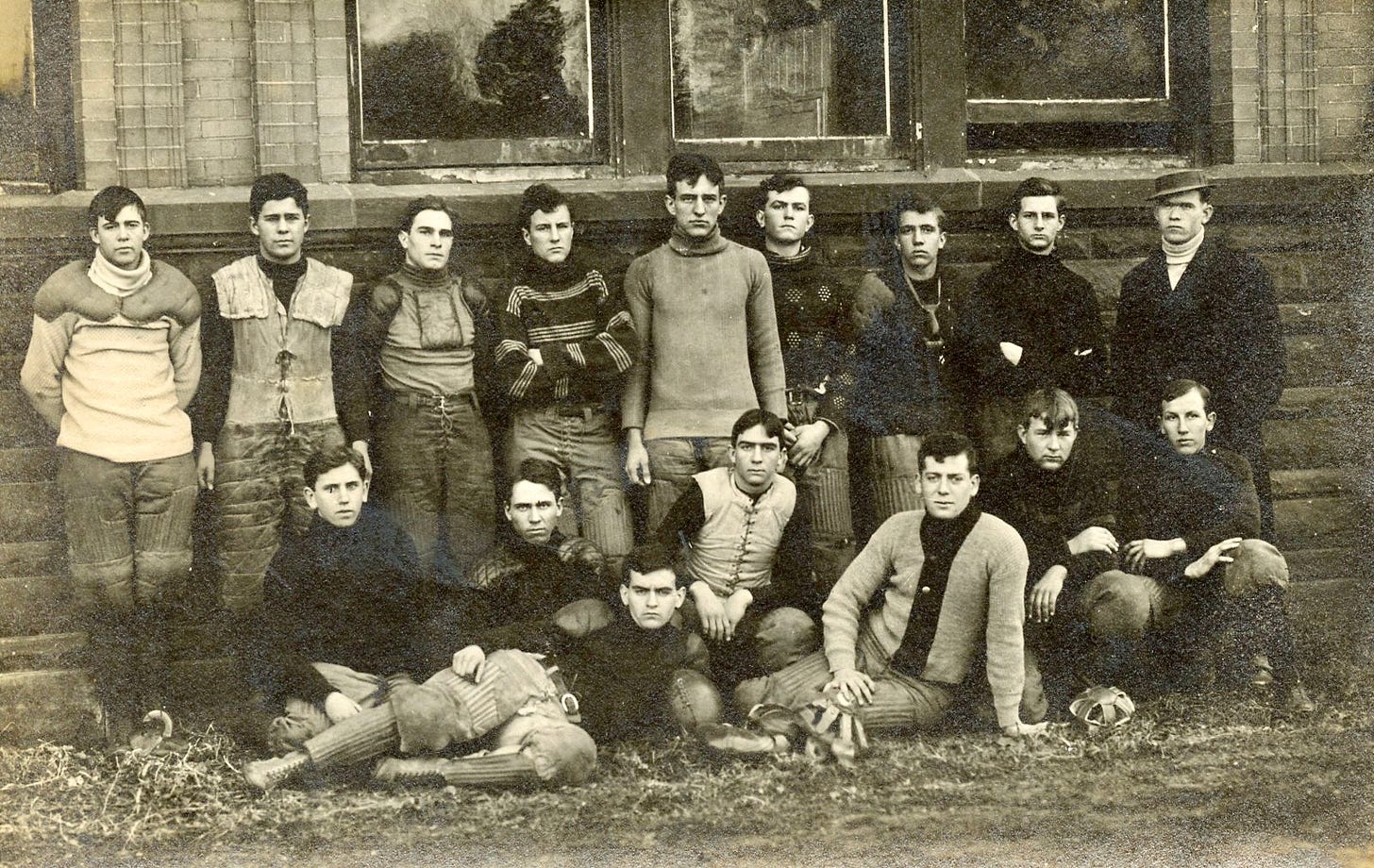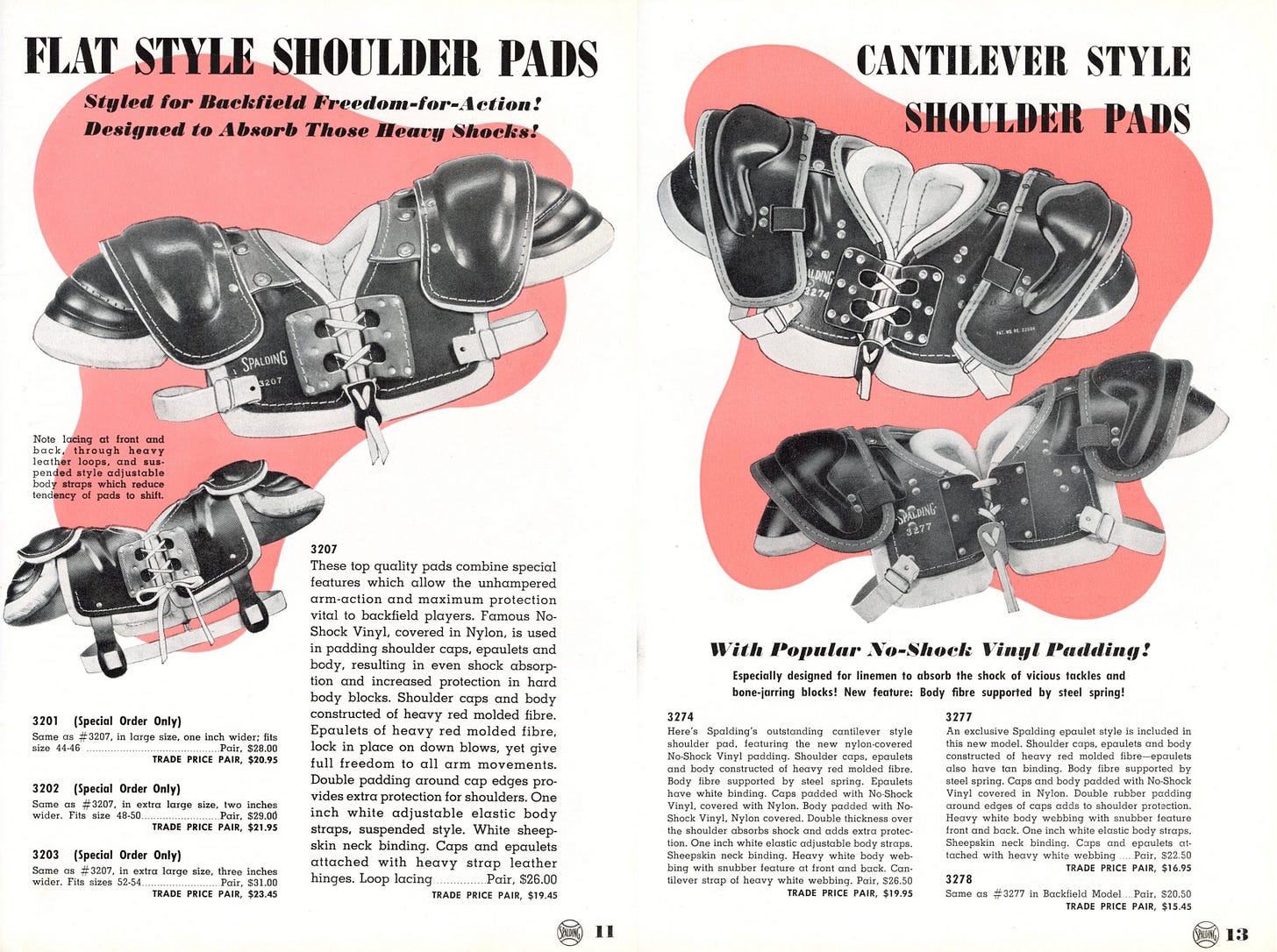Terminology... Popping Shoulder Pads
This is article #25 in a series covering the origins of football’s terminology. All are available under the Terminology tab above. My book, Hut! Hut! Hike! describes the emergence of more than 400 football terms.
The sights and sounds of particular bird species traveling along their migratory path herald the arrival of spring and fall. Another sign of seasonal change is the late summer arrival of writers, commentators, and fans gushing about "popping shoulder pads," along with variations such as the "popping of shoulder pads" and hearing "shoulder pads pop." A second set of shoulder pad-popping comments comes near the close of each season.
I've written before about the evolution of shoulder pads and their journey from leather or cloth pads sewn on jersey exteriors to their soft leather form, then onto the harder leather and fiber materials of the 1930s, and finally to the plastics used for the last seventy years.
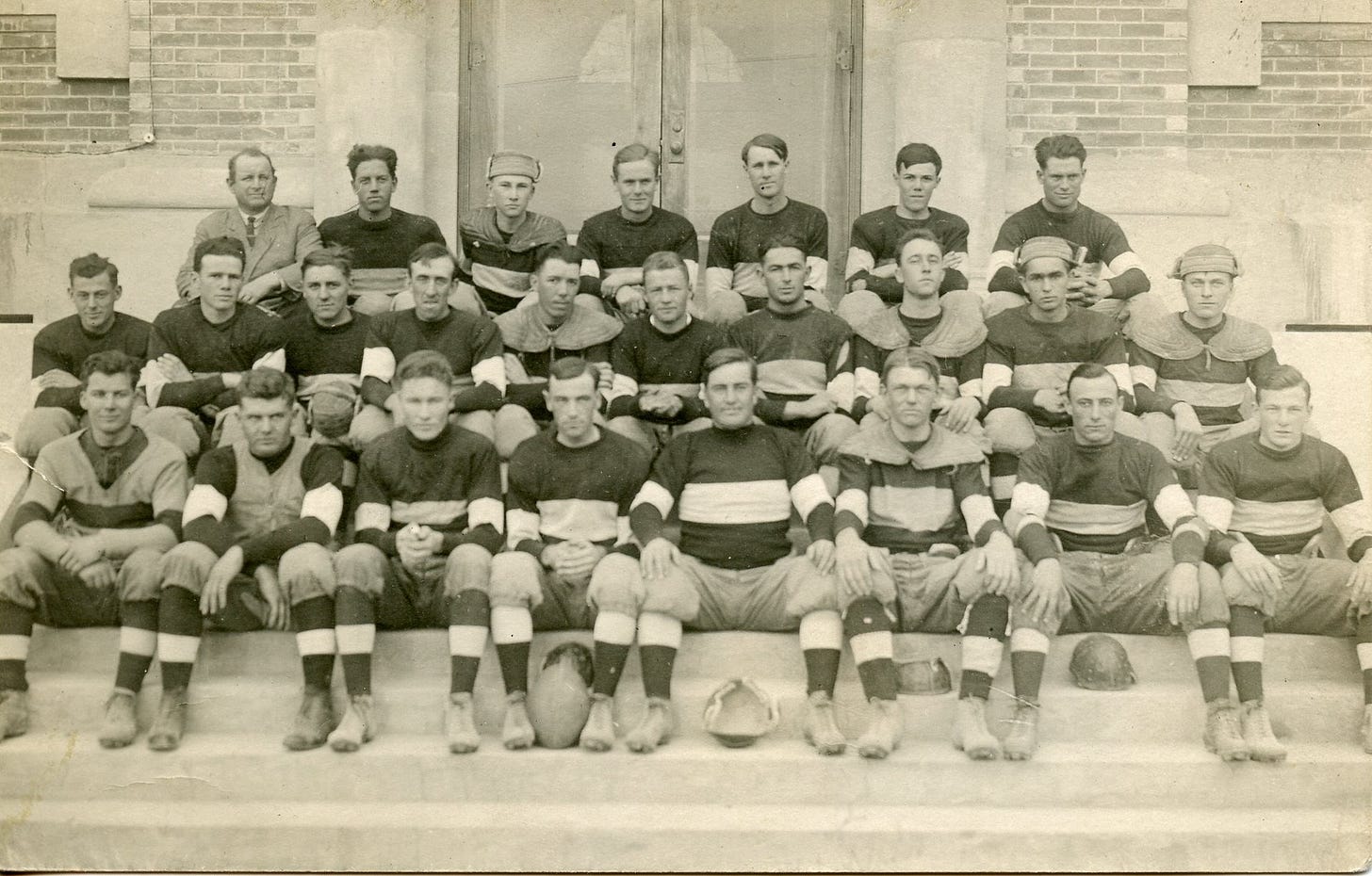
Many consider the arrival of popping shoulder pads among life's great joys, so I looked into when, where, and why pads first made that lovely popping sound. Tracking down when and where proved straightforward; why is more speculative.
The earliest identified instance of pad popping came in a 1933 column concerning Kentucky's early practices.
In years past, the Wildcats of the University of Kentucky have been famished for young men big and fast enough to carry the ball and strong and durable enough to run head-on into an enemy ball toter and bring him down with a grinding of bones and a popping of shoulder pads.
Dunn, Neville, 'Backfield Talent Plentiful On Stoll Field,' Lexington Herald, KY), September 8, 1933.
Their pad-popping helped the Wildcats win their first four games but only one of the following six.
Two years later, pads popped in a game for the first time when Mississippi State visited and beat Army 13-7.
Ike Pickle sports a black eye, one of the momentoes (sic) of the occasion, which was, take it from the boys, anything but a tea party out there... not only were shoulder pads popping like firecrackers in a battle of two magnificent lines, but there was more than one Army fist used on the faces of the Bulldogs during the afternoon.
Hewitt, Purser, 'En Route Home With Miss. State Special,' Clarion-Ledger (Jackson, MS), November 4, 1935.
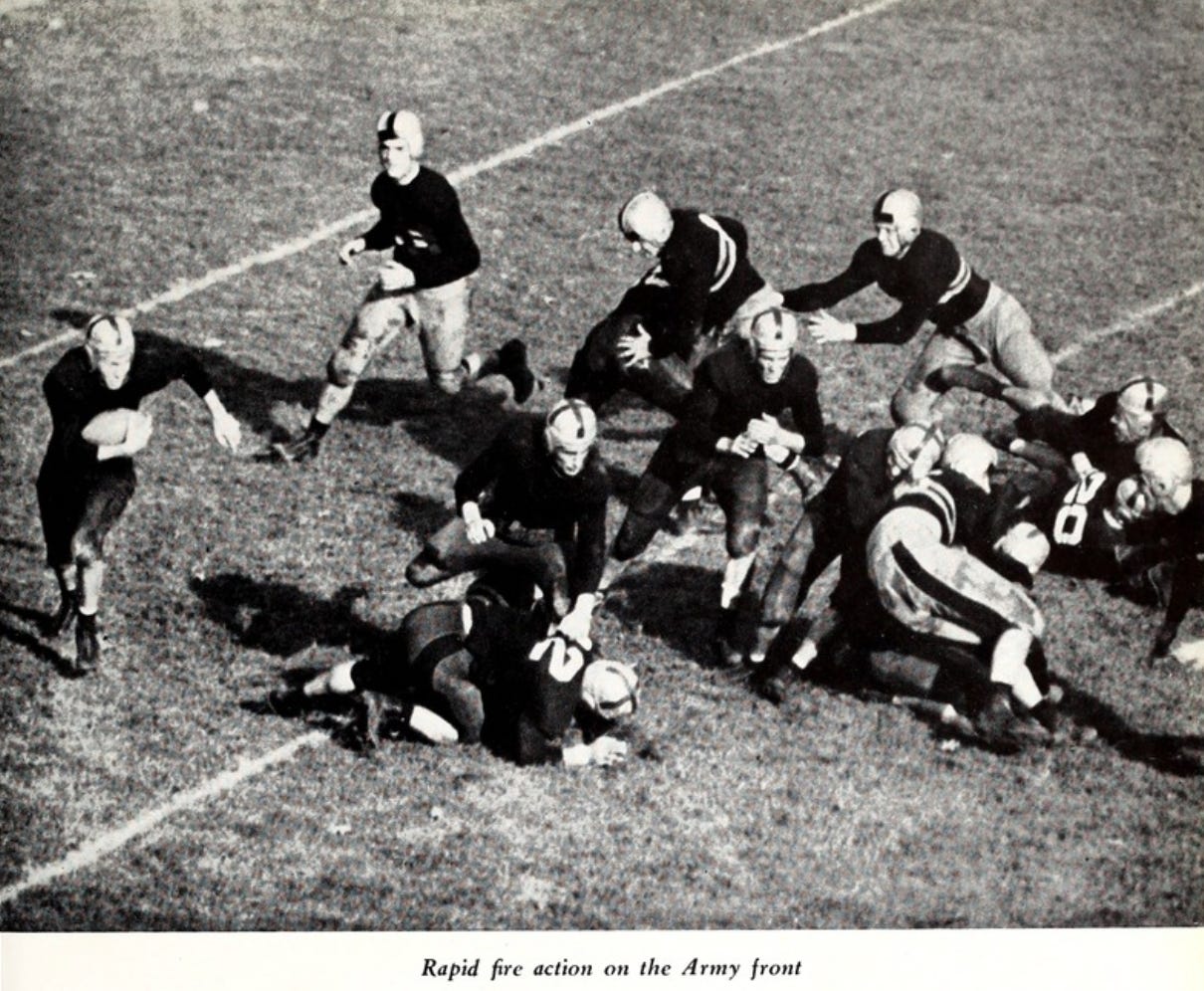
Pads largely stopped popping until the late 1940s before reappearing, but like some bird songs, most pad popping was heard in the South. The expression migrated to the West Coast in the Fifties before entering the snow belt in the 1960s.
Having addressed the when and where of pad popping's origins, we now turn to the why. The best explanation seems to be the change in the materials and design of shoulder pads that began in the mid-1920s. As seen in the images shown earlier in this story, early shoulder pads were soft, small, and designed to cushion blows. They made little more sound in a collision than a pillow being struck. However, as the 1920s progressed, manufacturers used stiffer leather and fiber materials to provide mechanical protection, just as they did with helmets.
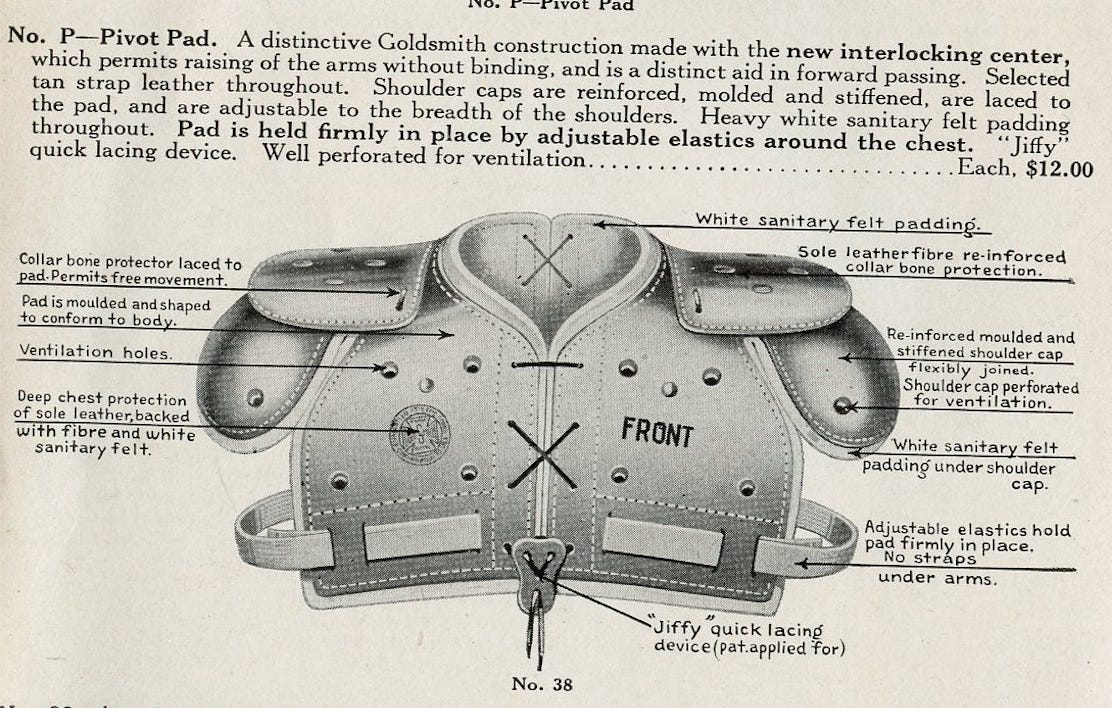
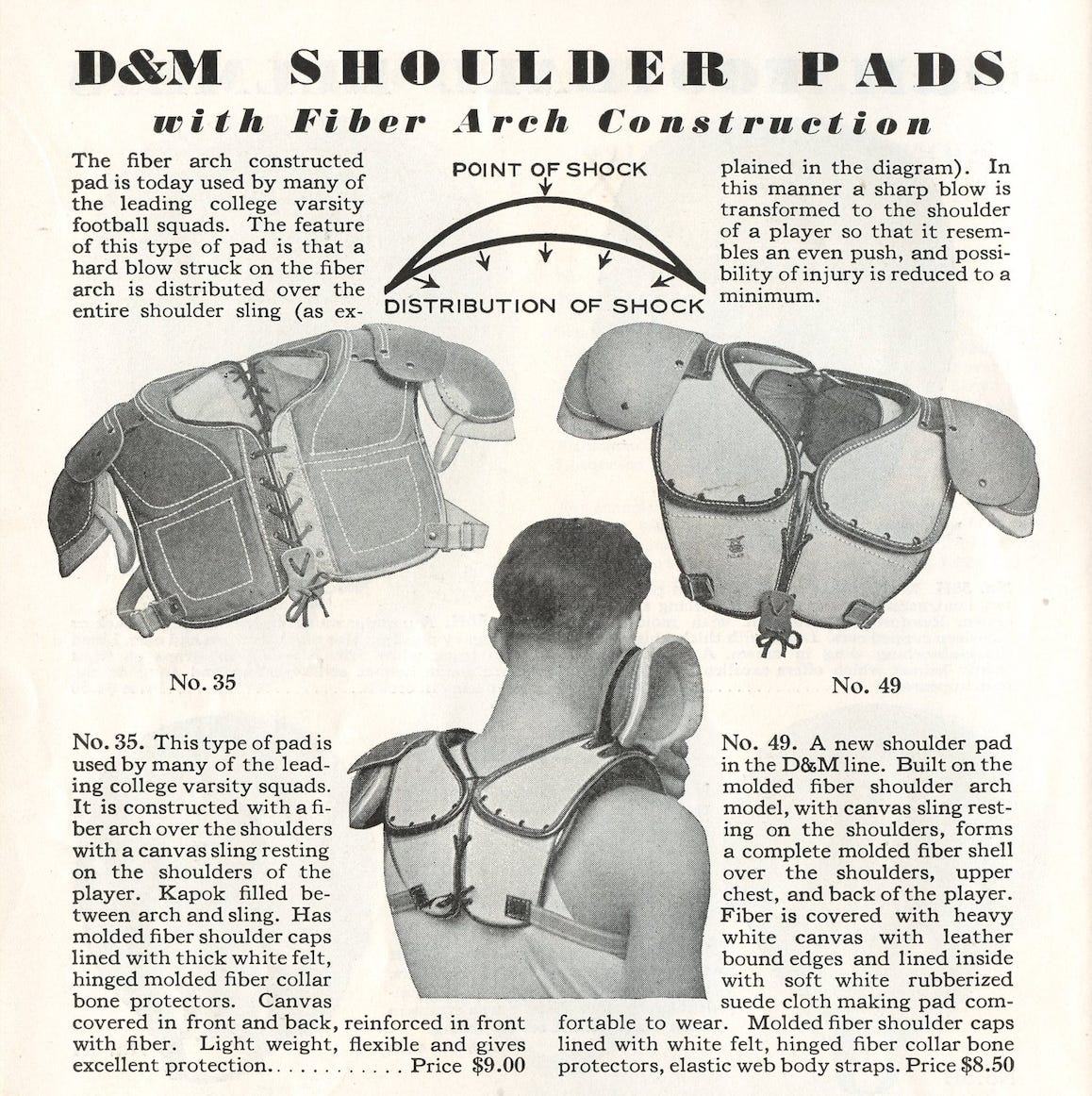
Besides using stiffer materials, the mid-1920s and early 1930s saw shoulder pad designs start using multiple layers, producing a cantilevered effect to disperse the force of the blow. A side effect of the designs came when one stiff piece of material hit another and made sounds previously unheard on football fields.
By the mid-1950s, the typical shoulder pad used layers of vinyl caps and epaulets to reduce the number of broken collar bones, and these plastic pieces made more sound when hitting one another than their leather predecessors.
Plastic and multi-level pads have increased the amount of pad popping nationwide, but all good things must end. A writer covering Texas high school football in 1952 reminded us that all pleasant football sounds are temporary. The popping of pads announces the beginning of a new season, but they go silent until returning the following year.
Thus ended the 1952 season in the county. We will have to wait until another fall season rolls around to hear the thud of moleskins against pighide (sic) and the "music" of popping shoulder pads.
'M'Kinney-Collin County, Playing The Game Over,' Courier-Gazette (McKinney, TX), December 2, 1952.
Football Archaeology is reader-supported. Click here to buy one of my books or otherwise support the site.


